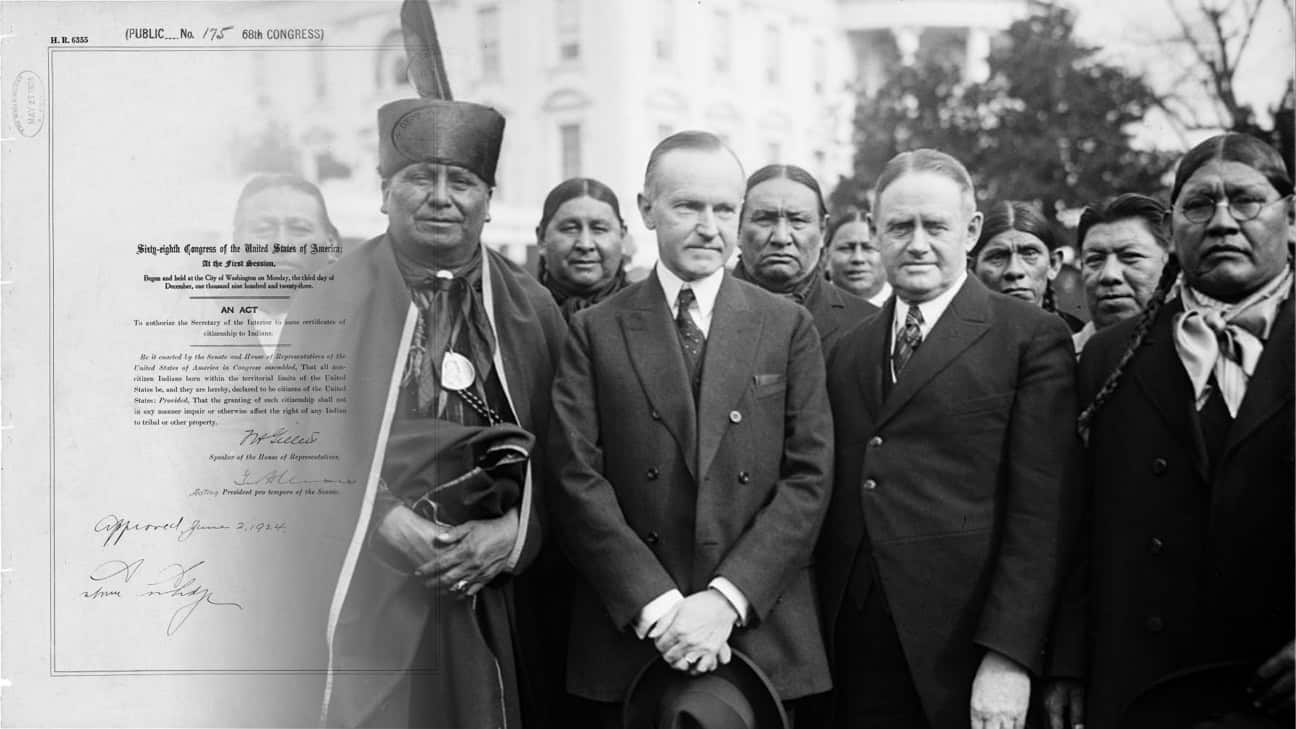
U.S. President Calvin Coolidge, left center, stands with Act sponsor U.S. Representative Homer P. Snyder (R-NY),center right, and members of a delegation of Osage Indians, outside the White House, following the signing of the Indian Citizenship Act of 1924 was filed with the U.S. Library of Congress.
100 years of Indian Citizenship Act of 1924
Hattak Vpi Homma Ibafoka Akaniohmi
Published June 10, 2024On June 2, 1924, U.S. President Calvin Coolidge signed into law the “Indian Citizenship Act of 1924,” which gave full birthright citizenship for Native Americans.
This new law, gave Native Americans certain rights and privileges as U.S. Citizens, but it would take many years until all rights, such as the right to vote in 1965, were bestowed upon the tribes. This Act was a steppingstone to the many rights our Choctaw ancestors fought for. Over the last 100 years, U.S. tribes have fought the good fight to achieve all the sovereignty rights that we enjoy today as Native Americans. We owe a great deal to our ancestors that went before us, stood before the U.S. Congress, and demanded every right we enjoy today.
Imagine this, without these rights tribes would not be allowed to govern their own sovereign nation and tribal members would not be allowed to vote in the upcoming November elections. Before the Civil War, citizenship was often limited to Native Americans of one-half or less Indian blood.
According to the U.S. Library of Congress, in the Reconstruction period, progressive Republicans in Congress sought to accelerate the granting of citizenship to friendly tribes, though state support for these measures was often limited. In 1888, most Native American women married to U.S. citizens were conferred with citizenship, and in 1919, Native American veterans of World War I were offered citizenship. In 1924, the Indian Citizenship Act, an all-inclusive act, was passed by Congress. The privileges of citizenship, however, were largely governed by state law, and the right to vote was often denied to Native Americans in the early 20th century.
The 1924 act read that “all noncitizen Indians born within the territorial limits of the United States be, and they are hereby, declared to be citizens of the United States: Provided that the granting of such citizenship shall not in any manner impair or otherwise affect the right of any Indian to tribal or other property.”
It is difficult to imagine today the hardships our Choctaw ancestors had to endure by not being counted as U.S. citizens. Our ancestors were not given equal footing in legislative matters that governed their well-being and rights as U.S. Citizens. Our ancestors paved the way for the Choctaw Nation to achieve a self-empowered, sovereign state that enjoys the rights and freedoms as U.S. citizens and sovereign tribal members.
All Native Americans in the U.S. stand on the shoulders of our ancestors who paved the way for our future. There would be no Choctaw Nation without the battles of our ancestors who were unflinching under the tremendous, and often unfair tactics. We are here today because of the bravery, strength, and steadfastness of those that came before us. That is why the battles we fight today to maintain our strength and sovereignty are so important.
Yakoke and God Bless!